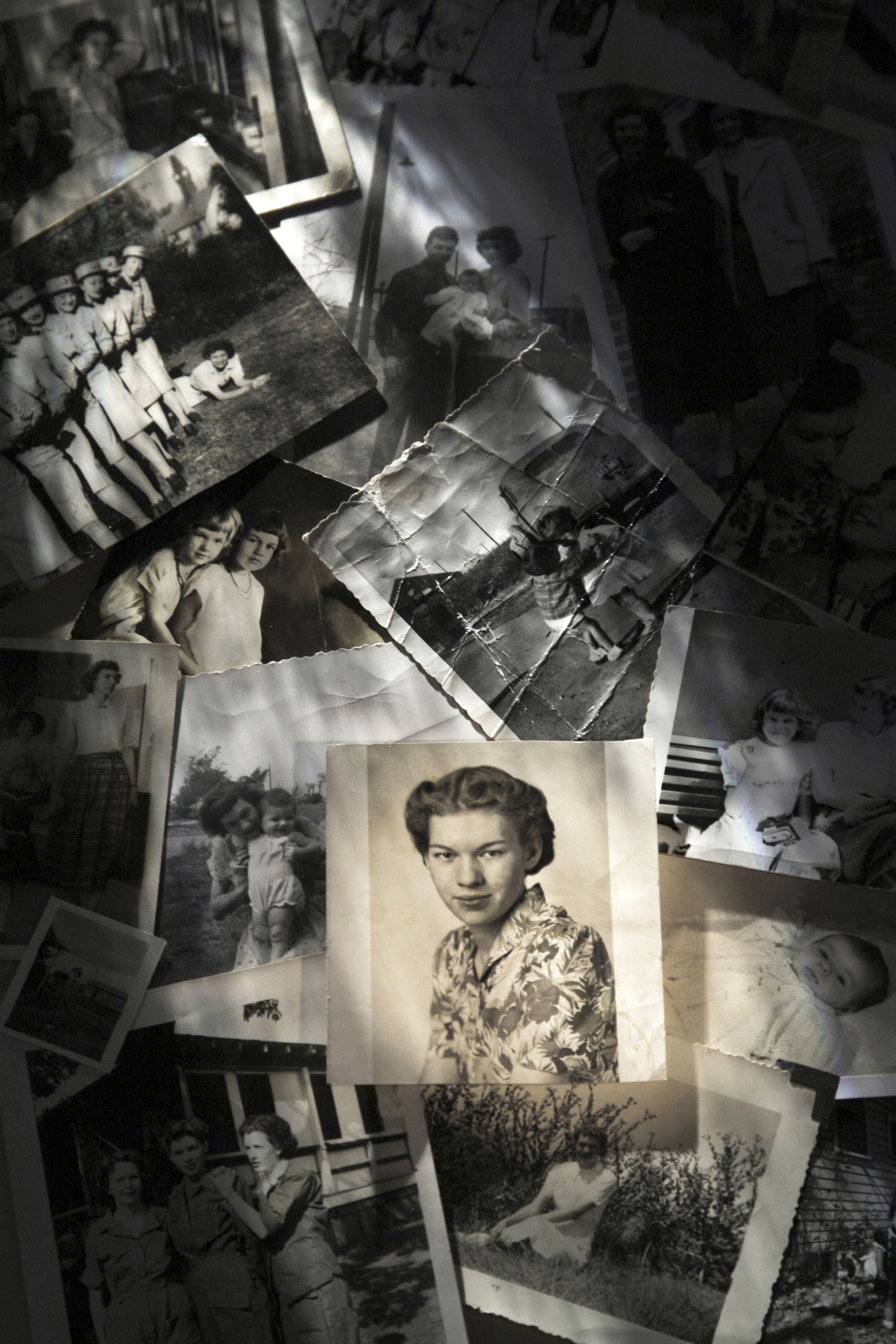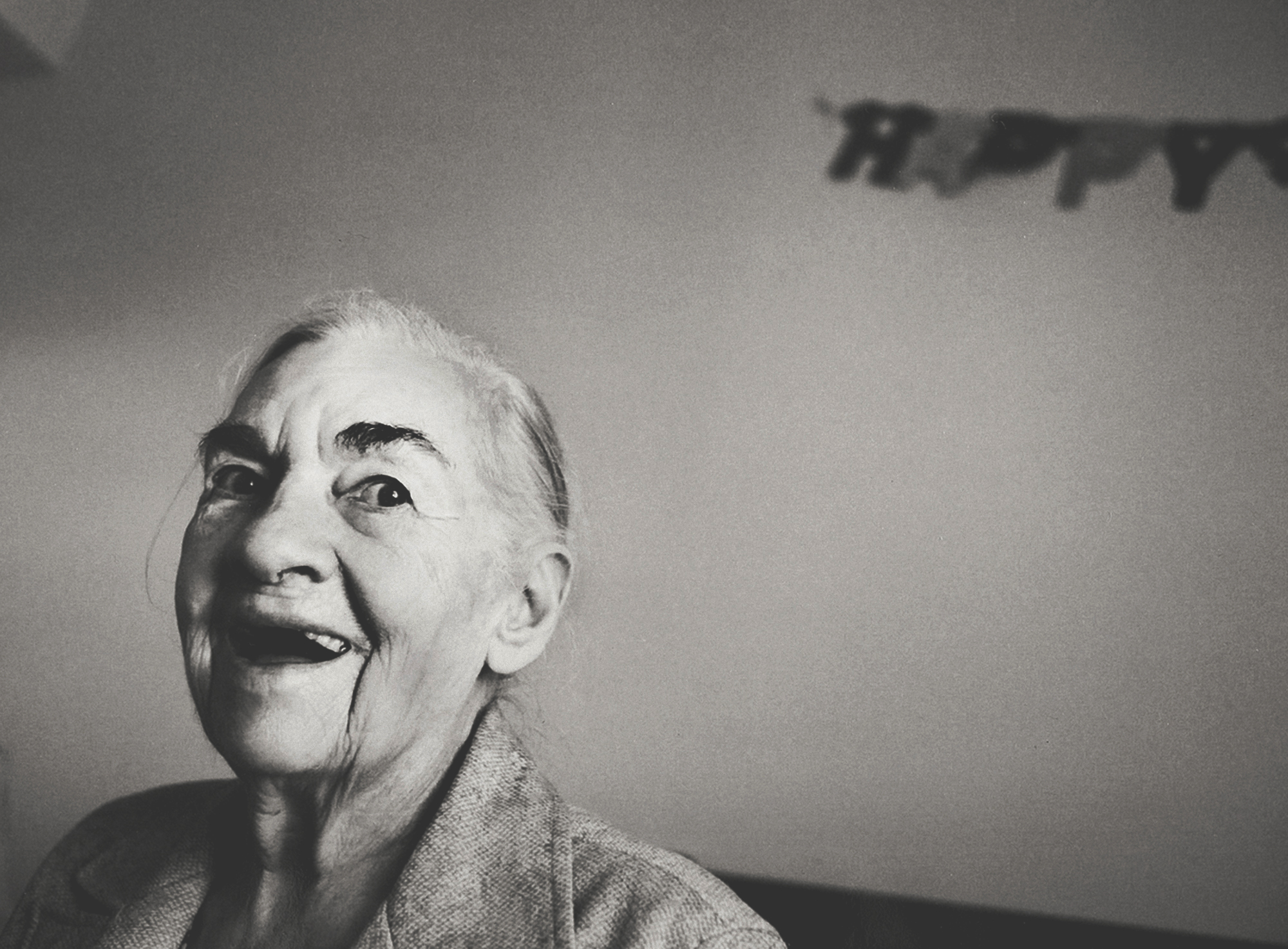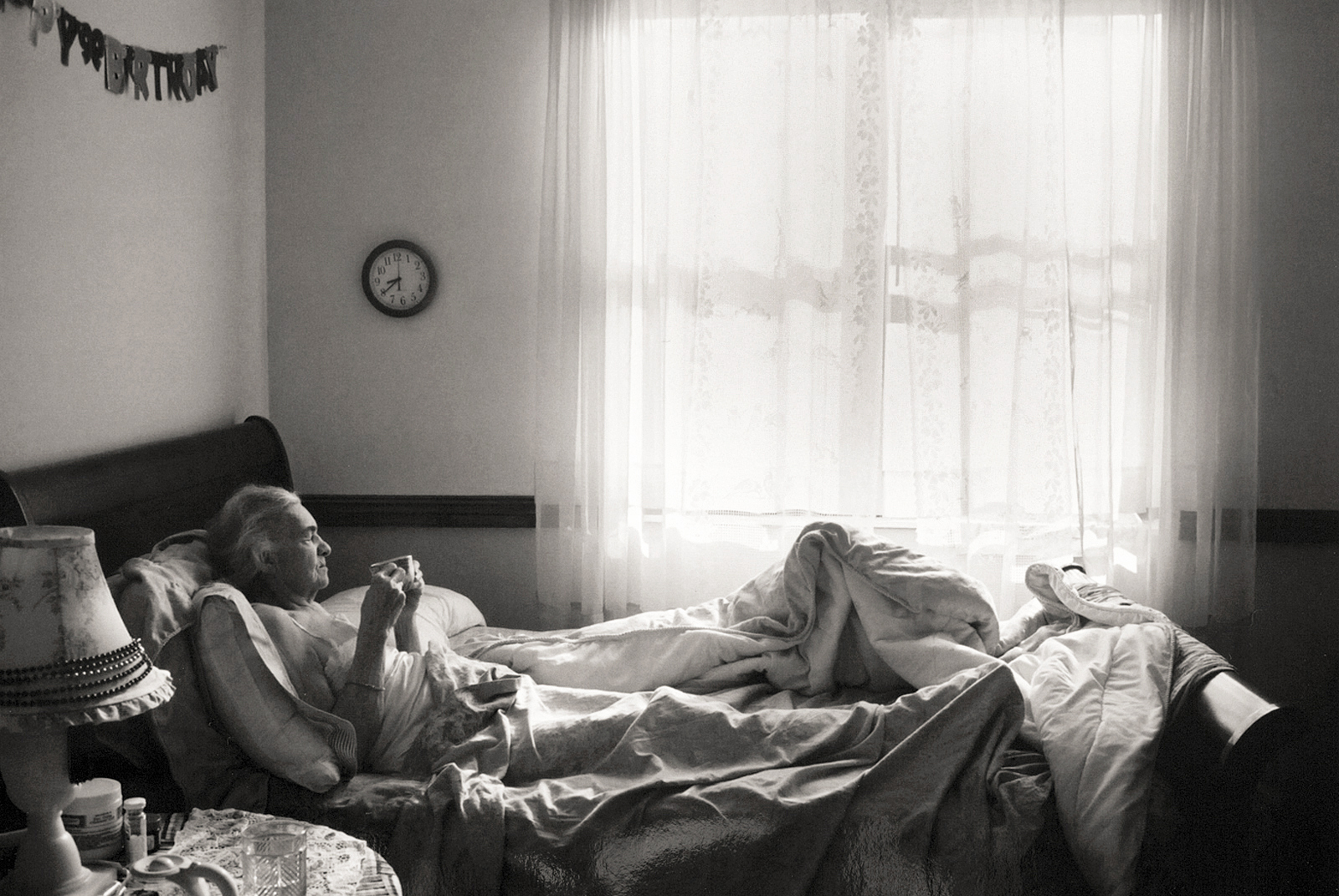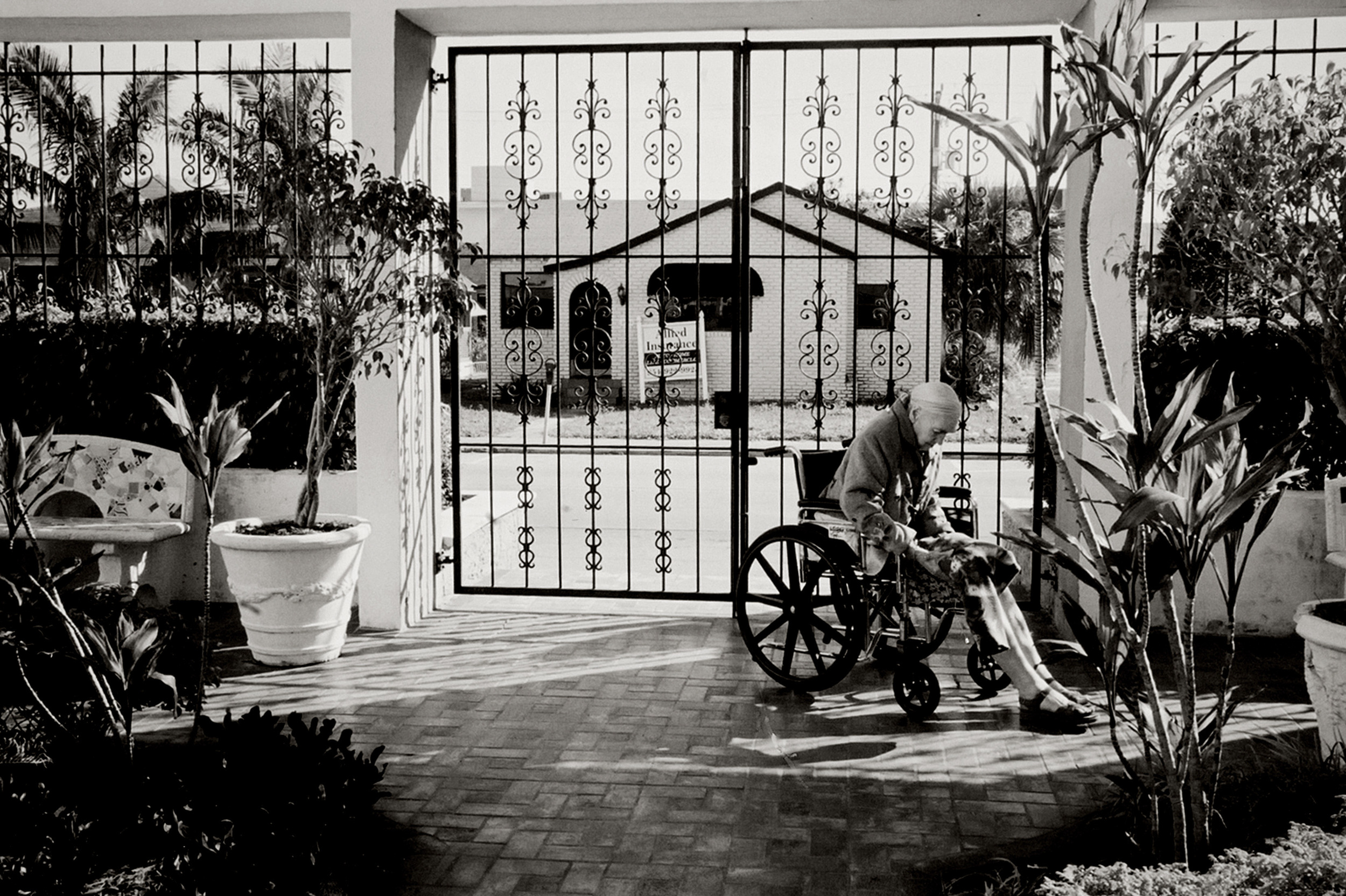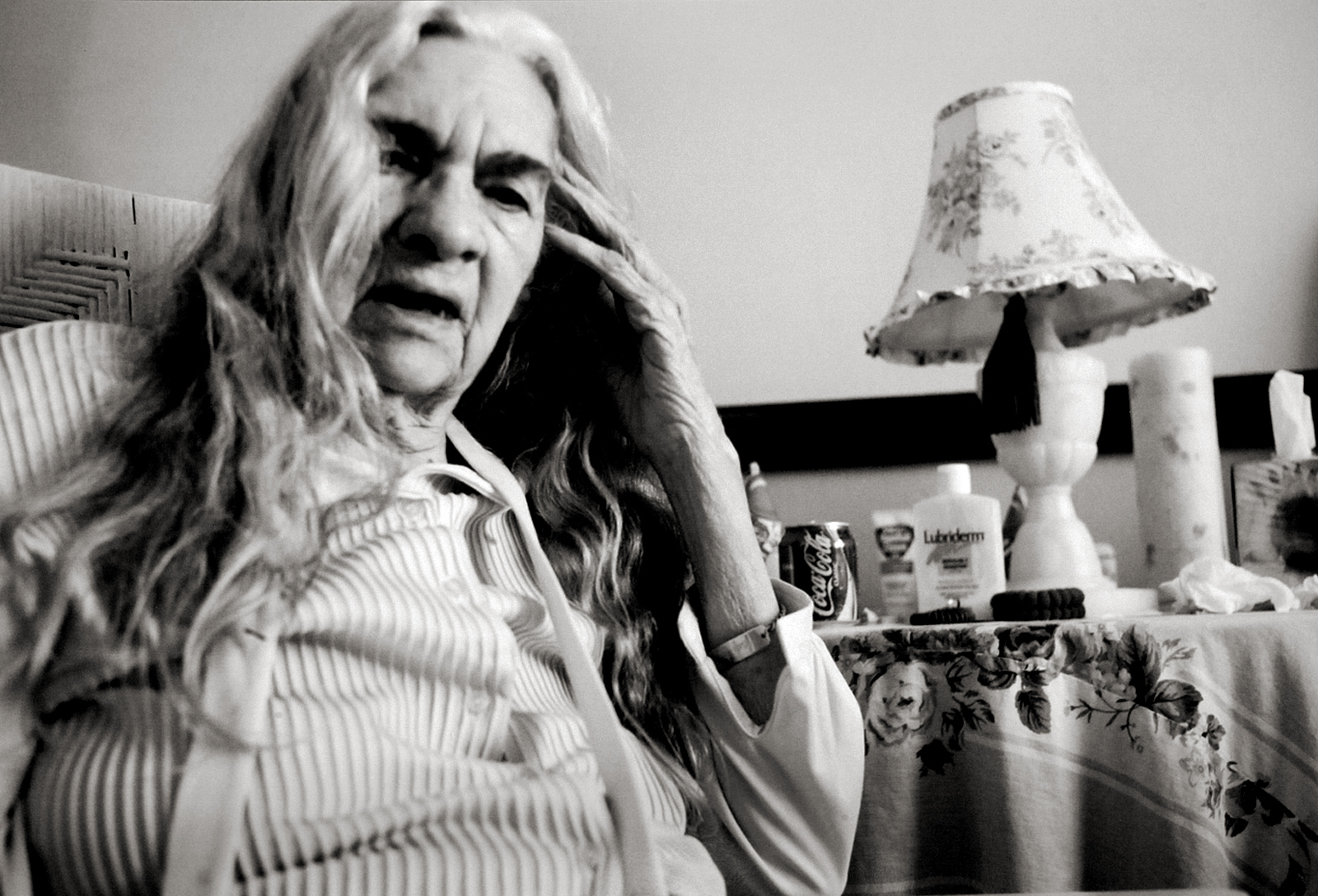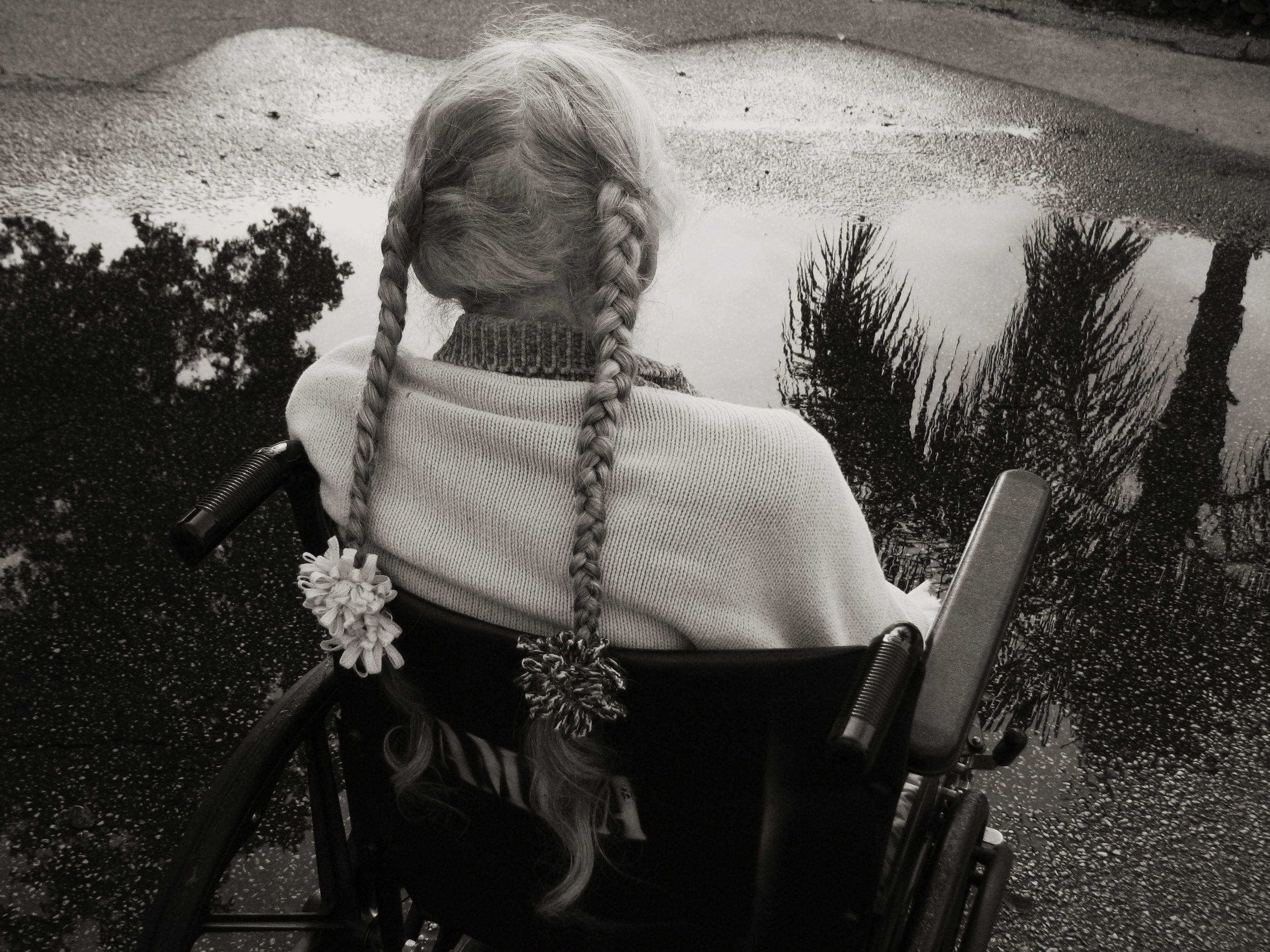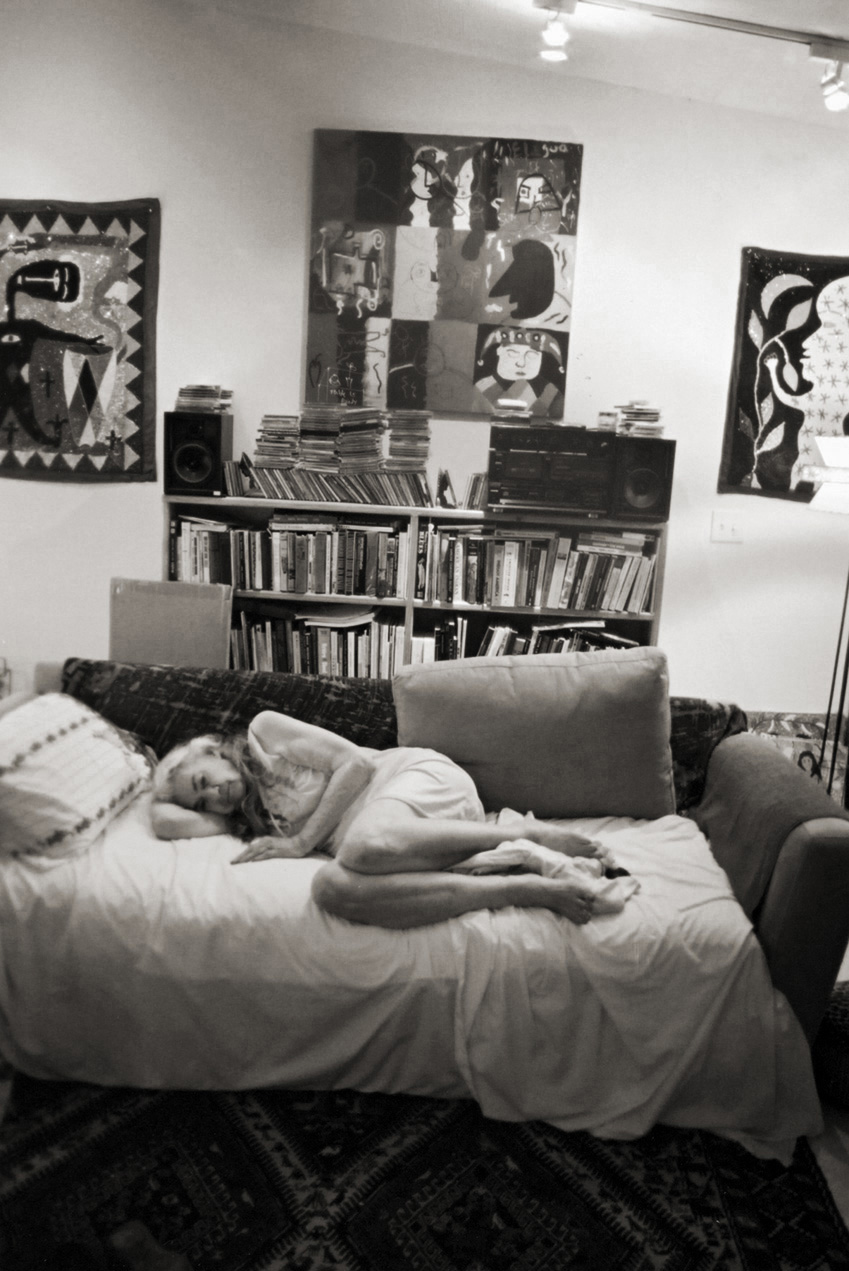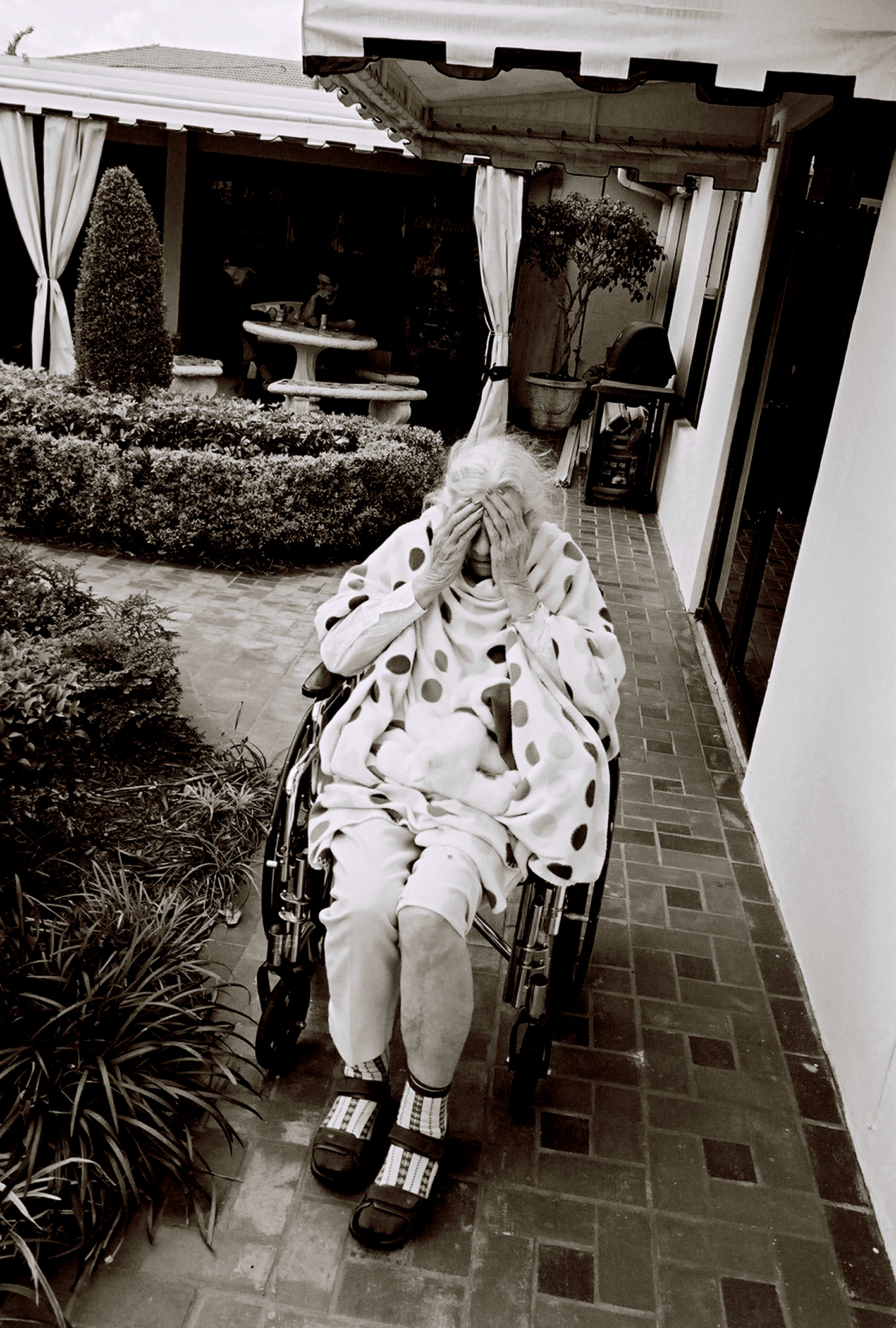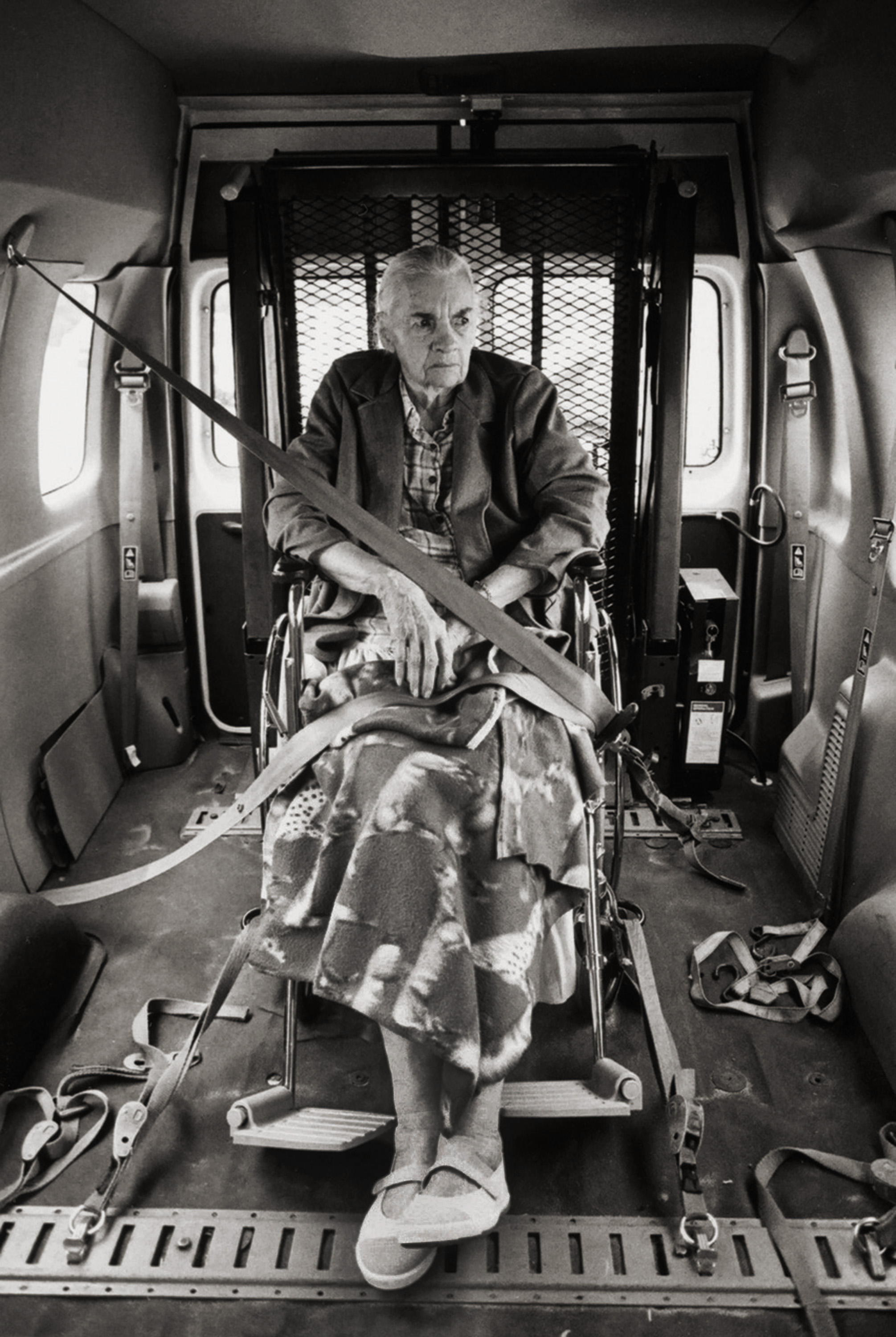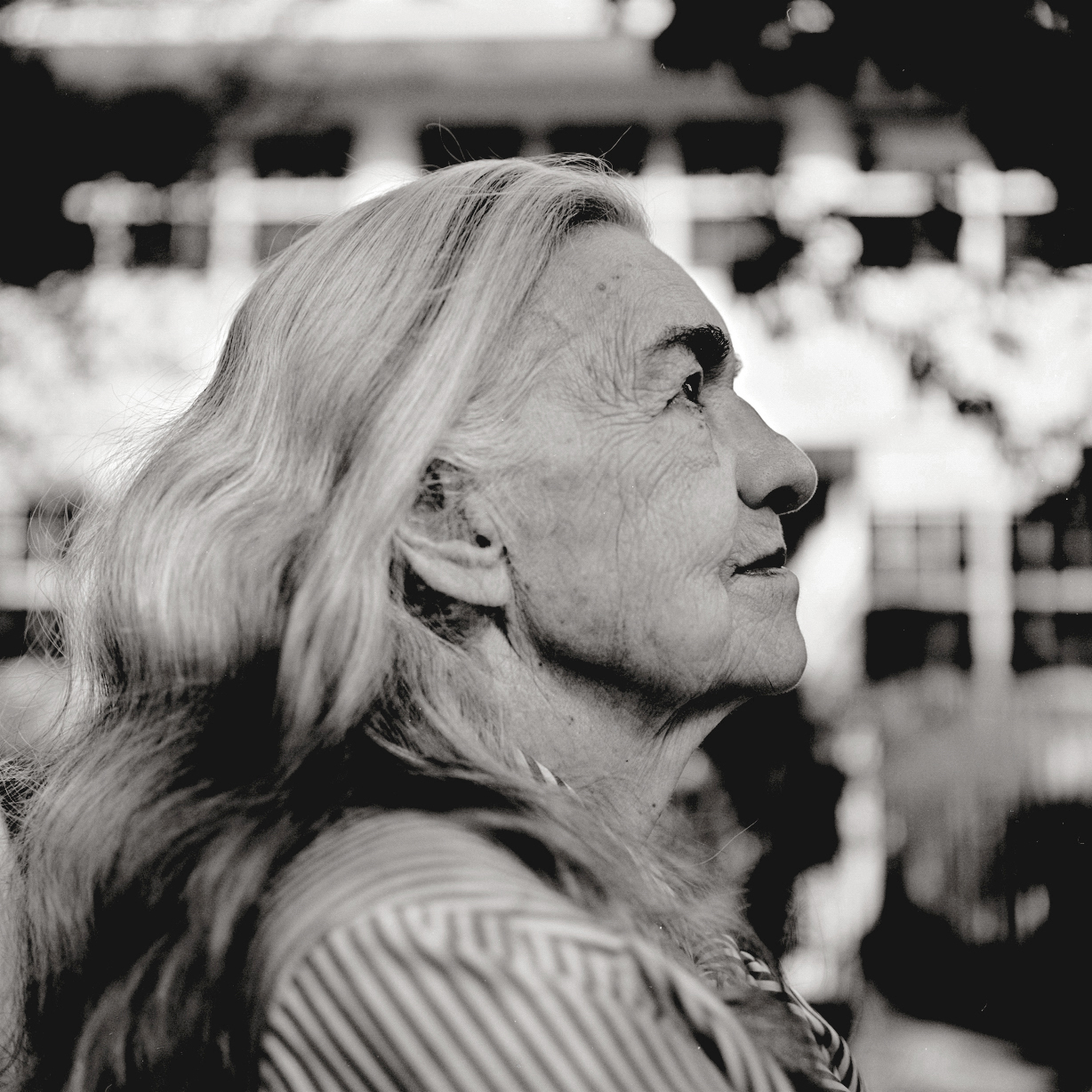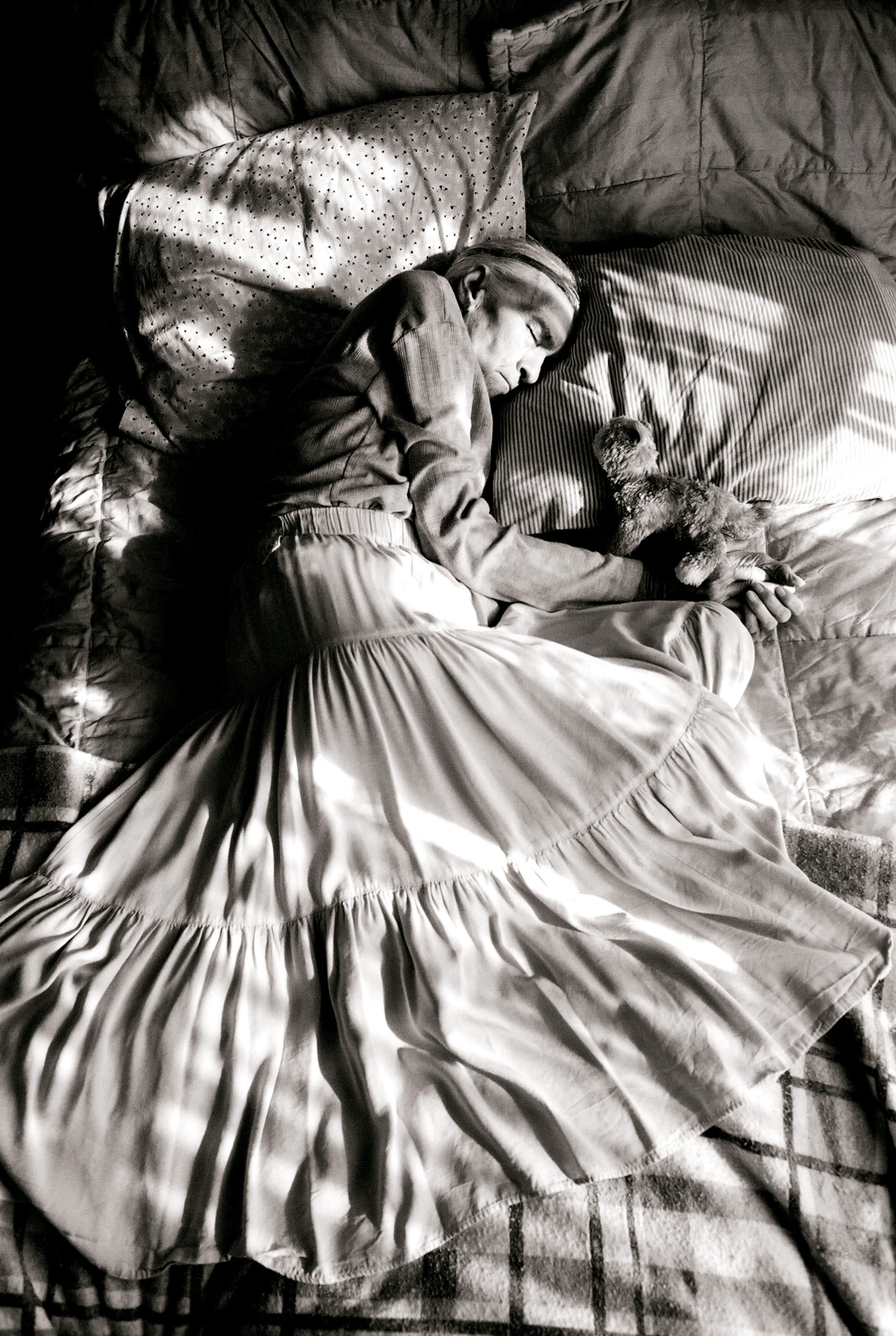Photographs and words by Maggie Steber
EDITOR'S NOTE: What I have always appreciated and loved about Maggie Steber's personal project on her mother, is that it was such an honest and beautiful interpretation of dementia. Don't get me wrong, dementia is ugly and difficult. But Maggie brought tenderness and intimacy to her images and her words that softened the stigma of dementia. The images did not scare you or make you look away. Instead you were brought into the life and beauty that was Madje.
Madje Steber walks through the gardens of Bay Oaks Home for the Elderly on the way to lunch in Miami, Florida, in 2005. She carried her stuffed kitty everywhere with her as she fell into the childlike stage of dementia.
Everyone says the tie that binds us is love or blood. I think it is memory.
For nine years I cared for my mother Madje as she set sail on the melancholic voyage of memory loss. A scientist who did research and wrote important papers, she was strong-willed, simultaneously logical and eccentric, tough but generous, practical, wasted nothing and counted every dollar. She raised me after divorcing my father when I was a baby. The accumulated events of her life, some of which I could only guess at, created a brilliant but complicated woman who became an eccentric recluse with age. After struggling to keep her in her home in Texas, I moved her to Miami to be close to me.
We had one blissful year before she began to wander and I had to move her. I looked at 50 places. One was a lock-down facility that had been recommended. After the tour, I ran to my car and wept. Finally I found an odd but welcoming place where a simple code could get you in and out the door. The caregivers were wild Cuban and Romanian women of great heart. Becoming like sisters to me and daughters to my mother, these women spoiled Madje rotten and surrounded us with love as my mother suffered episodes of anger, bliss, wandering, biting, scratching, kicking and screaming. She suffered physical and mental decline after two falls and subsequent hip surgeries. We always fell into the safety net of love from these caregivers.
Suffering from dementia, Madje sits for a portrait at the home of daughter Maggie Steber in 2006 during a weekend visit in Miami, Florida. As her memory loss continued to add to her physical decline, Madje became more at ease in front of the camera.
I photographed my mother to save myself from the heartbreak of being forgotten. I showed her the photographs. To her, they were like postcards from distant lands. Recollection was thrown daily into the sea we crossed on this last voyage. It sounds cold—loveless in fact—but in some ways dementia gave me the mother I always wanted. Madje changed as her brain withered; she became more reasonable, childlike and kinder—even sexy. While she struggled with losing the core of her being, the worry fell from her face. She glowed. She was beautiful.
For the first time, I was able to look past my mother and see Madje, the real Madje as a person separate from me. The mother-daughter dynamics of contention disappeared. Dementia, that thief of self, allowed walls to tumble. Long-hidden secrets burst forth and I finally understood events that might have befallen my mother as a child and the ferocity that grew out of them.
Dementia gave the gift of a last chance to love.
Toward the end we would lie on her big bed by the open window, a sigh of wind blowing the lace curtains over us. Madje died in my arms one week after her 89th birthday. As a last act before her cremation, I braided her long hair and cut the braids, keeping one and giving one to each of her caregivers. When I miss her the most, I smell the braid I kept for myself.
It smells like Madje.
—Maggie Steber
Rite of Passage
This multimedia presentation was created by Maggie Steber and MediaStorm. Watch the preview below and follow links to see the entire project and interviews.




